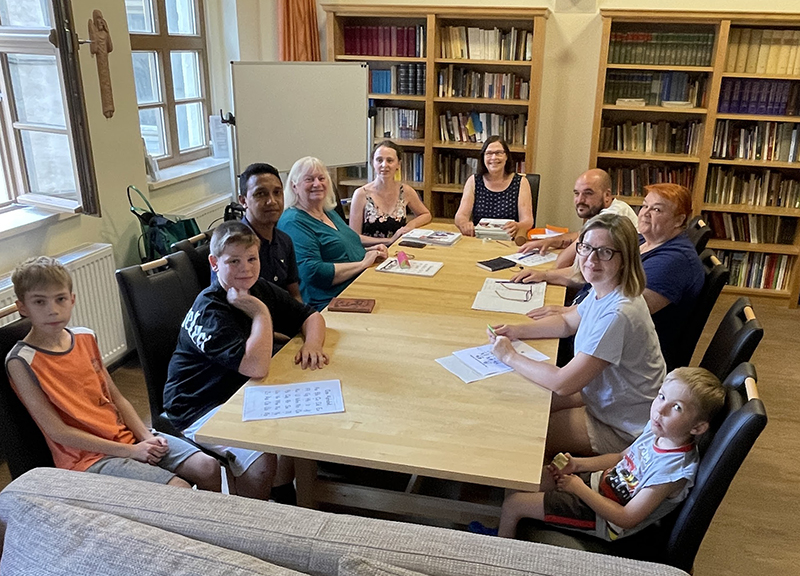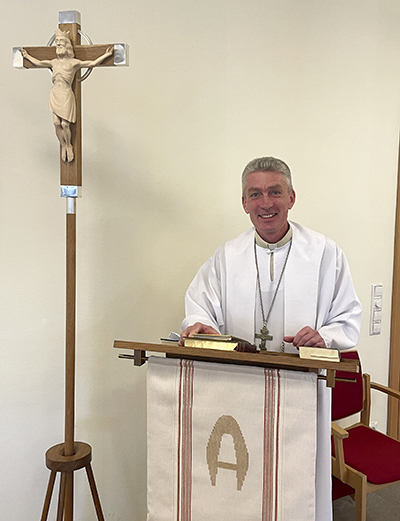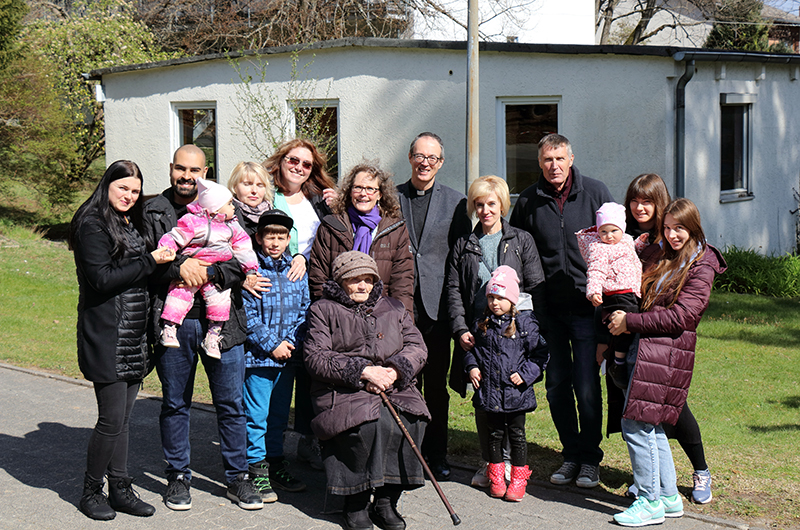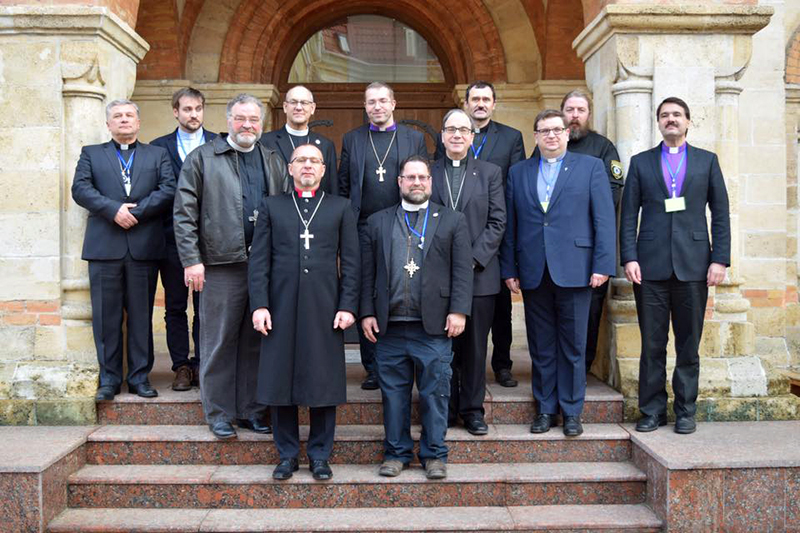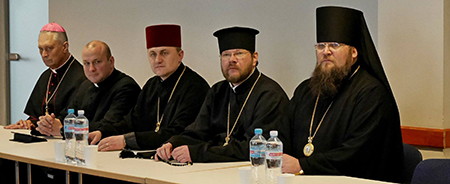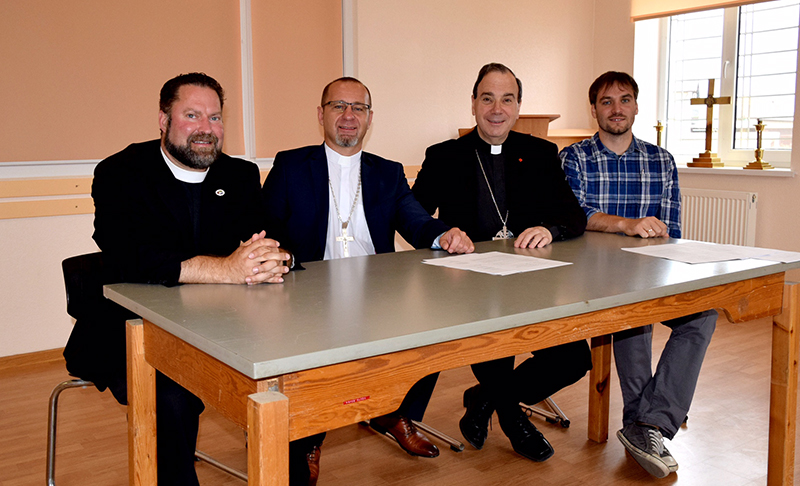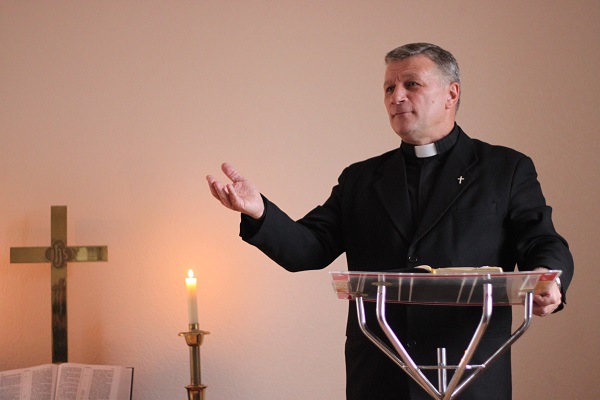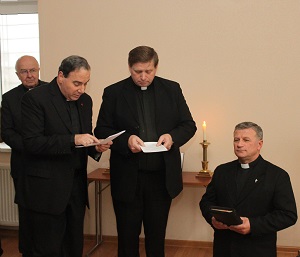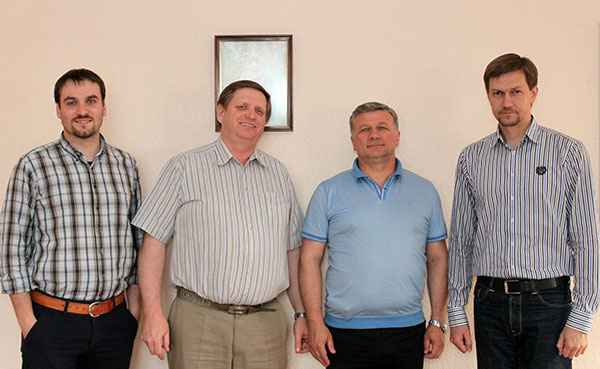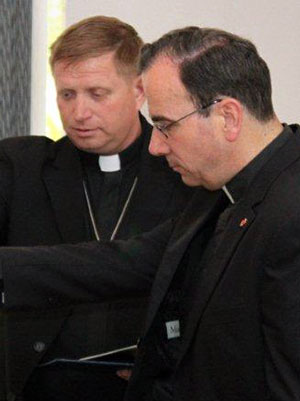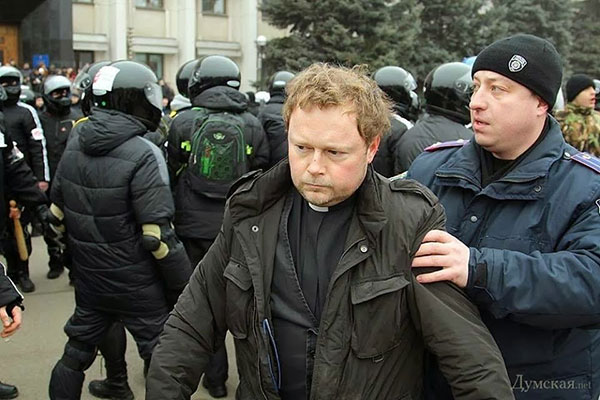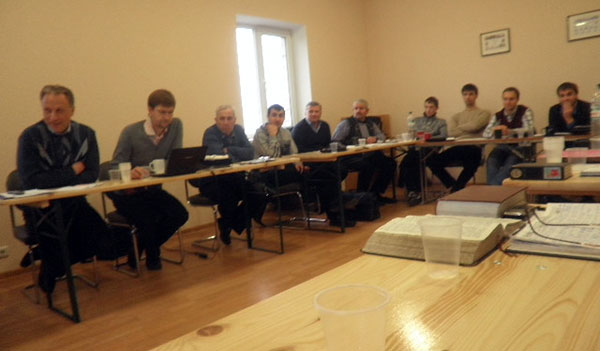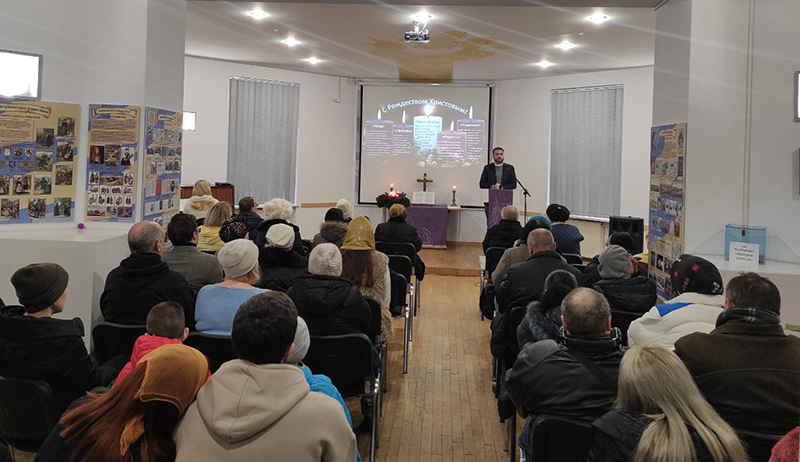
UKRAINE – The local Odessa congregation of the Synod of Evangelical Lutheran Churches of Ukraine (SELCU) welcomed many visitors to worship in its chapel for Christmas.
The festival day brought many people to “Christmas markets” in this southern Ukrainian metropolis on the Black Sea, and the congregation has been active in distributing gifts and aid to nearby people. “We’ve never seen this many worshippers crowded into our modest worship space,” said Rev. Oleg Schewtschenko, pastor of the congregation.
SELCU pastors and people have been busy providing groceries, clothing, and other forms of aid to communities in the eastern and southern parts of the war-torn country. Members of Lutheran Church–Canada (LCC), which has worked with SELCU in theological education for many years, have donated around $650,000 to support these efforts. Meanwhile, pastors and people in the Germany’s Independent Evangelical Lutheran Church (Selbständige Evangelisch Lutherische Kirche – SELK) have assisted SELCU members and other Ukrainian refugees to find housing as many were fleeing their homeland.
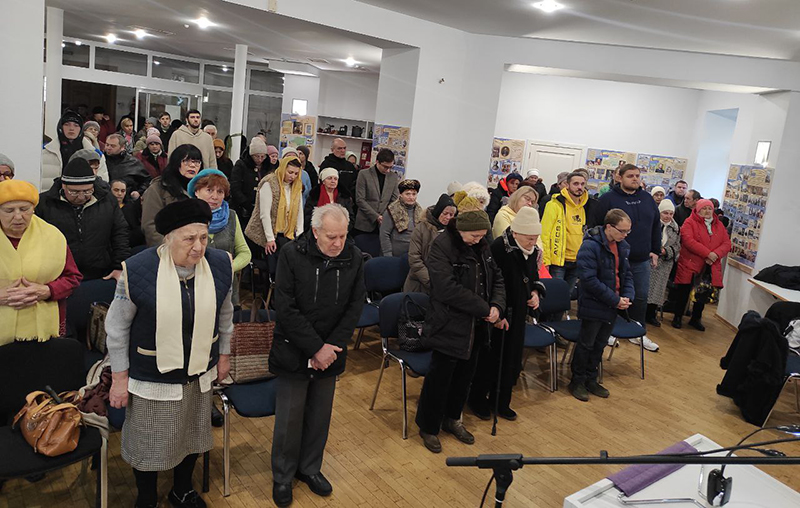
Though some of them would be eligible to leave Ukraine, SELCU’s pastors have chosen to remain in place to assist displaced persons whose communities and homes were destroyed in the Russian military onslaught. Many of them found temporary shelter and food at the SELCU seminary. Transportation was also offered, especially to women with children, to assist them in reaching border crossings so refugees could travel on to safer points farther west.
LCC and SELK are both members of the International Lutheran Council (ILC), a global association of confessional Lutheran churches. You can support continuing relief for Ukrainians through the ILC with a donation online (select “Mission in Mercy- UKRAINE”). You can also donate by mail:
International Lutheran Council
PO Box 10149
Fort Wayne, IN 46850
———————

